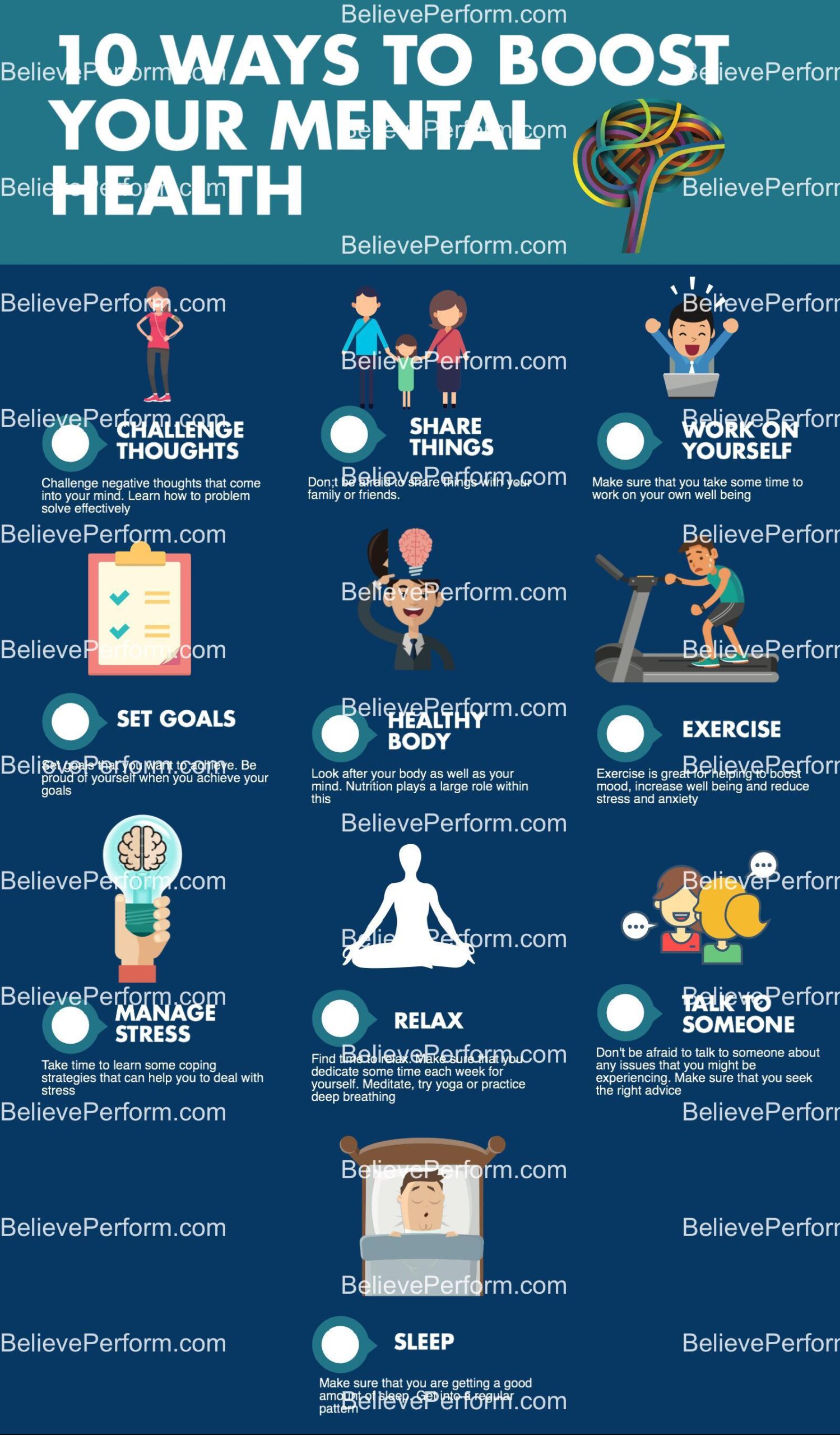Improving mental health is crucial and there are several simple things that can be done to achieve it. Firstly, connecting with others is important as it makes individuals feel happier and less stressed. Practicing gratitude by reflecting on the positive in life can improve overall well-being. Exercise releases endorphins that can boost moods and reduce stress and anxiety. A healthy sleeping routine is also important, with seven to nine hours suggested each night. Eating a balanced diet and limiting alcohol and drug use are also key factors. Managing stress and practicing self-care are similarly important, as is seeking help if needed. Finally, it is essential to remember to be kind to oneself by practicing self-compassion.
10 Tips for Improving Your Mental Health
Life can be overwhelming, and it can take a toll on our mental health. But there are small things we can do every day to improve our mental well-being. Here are ten tips for improving your mental health.
1. Connect with others
Humans are social creatures, and we thrive on connections with others. Make time for friends and family, even if it’s just a quick text or phone call. Join clubs or organizations that interest you. Attend events and social gatherings. Connecting with others can help you feel happier and less stressed.
2. Practice gratitude
Take a few minutes each day to reflect on what you’re grateful for. It can be something as small as a good cup of coffee or as big as a promotion at work. Practicing gratitude can improve your overall well-being and help you focus on the positive in your life.
3. Exercise regularly
Exercise is not only good for your physical health but also your mental health. It releases endorphins, which can boost your mood and reduce stress and anxiety. Find an exercise routine that works for you, whether it’s going to the gym, hiking, or dancing.
4. Sleep well
Getting enough restful sleep is essential for good mental health. Make sure you’re getting between 7-9 hours of sleep each night. Try to establish a bedtime routine to help you wind down and relax.
5. Eat a balanced diet
Eating a healthy, balanced diet is crucial for good mental health. Make sure you’re getting enough fruits, vegetables, whole grains, and lean proteins in your diet. Limit processed foods and sugary drinks.
6. Limit alcohol and drug use
Alcohol and drugs can have a negative impact on your mental health. They can increase anxiety and depression symptoms and lead to addiction. Limit your use of alcohol and drugs, and seek help if you’re struggling with addiction.
7. Manage stress
Stress is a part of life, but it’s essential to manage it to avoid the negative impact it can have on your mental health. Find healthy ways to manage stress, such as mindfulness, meditation, or exercise.
8. Practice self-care
Make time for yourself each day to do something that makes you happy. It can be as simple as reading a book, taking a bubble bath, or going for a walk. Practicing self-care can improve your overall well-being and help you feel more balanced.
9. Seek help if needed
There’s no shame in seeking help if you’re struggling with your mental health. Talk to your doctor or a mental health professional if you’re experiencing symptoms of anxiety, depression, or other mental health issues.
10. Be kind to yourself
Remember to be kind to yourself. We’re often our own worst critics, but negative self-talk can impact our mental health. Practice self-compassion, and remember that you’re doing the best you can in any given moment.
In conclusion, taking care of our mental health is essential for our overall well-being. These tips are small things we can do every day to improve our mental health and feel more balanced and happy. Remember to make time for yourself, connect with others, seek help if needed, and practice self-care.
